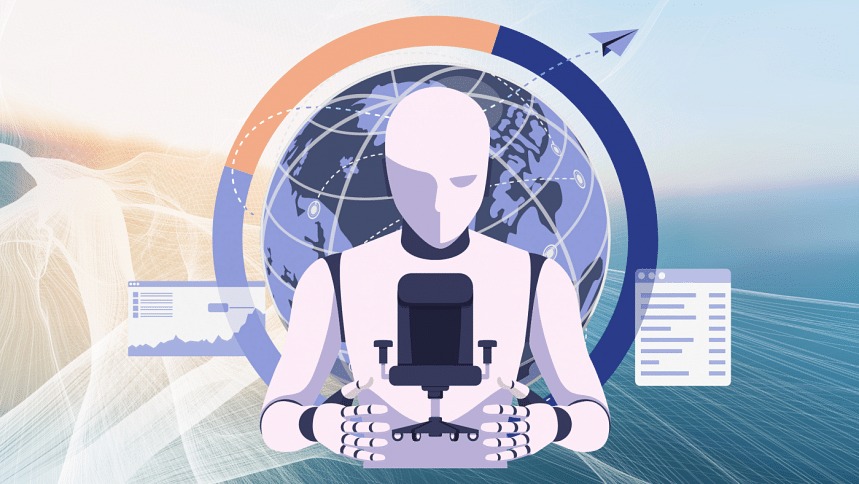Key takeaways from this year’s Standard AI Index Report

In the last decade, artificial intelligence has evolved at a breathtaking pace. The Standard Institute for Human-Centred Artificial Intelligence (HAI) publishes the Artificial Intelligence (AI) Index Report every year, providing a comprehensive picture of the current state of the AI world. This detailed report tracks, distils and visualises AI-related data, and this year, its sixth edition unveiled key AI-related issues. Here is a quick look at some key findings from the Standard AI Index Report 2023.
Global private investment in AI decreased for the first time in a decade
Global private investment in AI has a record of increasing for years. However, the investment decreased by 26.7% to $91.9 billion in 2022 compared to 2021, which was the first time in a decade. According to the report, the total number of AI-related funding events and newly funded AI companies has decreased. But as a whole, AI investment significantly increased in the last decade. Compared to the amount of AI investment in 2013, it was 18 times higher in 2022. Once again, the United States took the lead in AI investment. In 2022, the US invested $47.4 billion in AI, followed by China with an investment of $13.4 billion. The US was also in the lead in terms of the total number of newly funded AI companies
Carbon emission of AI systems
After comparing four large language models such as GPT-3, Gopher, OPT, and BLOOM, GPT-3 was found to release the most amount of carbon as per the report. It releases 1.4 times more carbon than Gopher, 7.2 times more compared to OPT, and 20.1 times more carbon than BLOOM. A training run of BLOOM can emit carbon 1.4 times greater than an average American uses per year and 25 times that of an individual's air trip from New York to San Francisco. The power used in this training run is enough to support an average American home for 41 years.
AI specialisation in the education sector
In 2021, the amount of AP computer science exams taken by American students totalled 181,040. The number of such exams has increased ninefold since 2007. Till 2021, 11 countries have endorsed and implemented AI curricula in K-12 (Kindergarten to 12th grade). From South Asia, only China and India have endorsed and implemented AI curricula in schools. In the K-12 curricula, the four topics which are mostly given priority are algorithms and programming (18%), AI technologies (14%), data literacy (2%), and application of AI to other domains (12%).
Moreover, many employers in the US are now more likely to hire employees with AI-related skills according to the report. In 2021, 65.4% of AI PhD graduates took jobs in the private sector compared to academia (28%) and government (1%). That year, the amount of AI-related job postings was 1.7% and it increased to 1.9% in 2022.
Chinese citizens are more hopeful about AI
As per the AI Index Report 2023, 78% of Chinese respondents expressed their satisfaction with AI products and services. They think that there are more benefits to AI products than drawbacks. After China, the people of Saudi Arabia (76%) and India (71%) seem to be positive regarding AI products. On the contrary, only 35% of American respondents felt hopeful about such products. Those who are not much hopeful of such products mainly mentioned their concerns regarding the loss of human jobs (19%), surveillance, hacking, and digital privacy (16%), and the lack of human connection (12%). In the context of gender, men are more likely to feel positive about AI products and services than women as per the survey.
Rising misuses of AI
Since 2012, AI-related incidents and controversies have increased by 26 times according to the AI, Algorithmic, and Automation Incidents and Controversies (AIAAIC) database. This database mainly records incidents related to any ethical misuse of AI. In 2022, a deep fake video circulated on social media where Ukraine President Volodymyr Zelenskyy was seen surrendering. In another instance, a fake video of US prisons applying call-monitoring technology on prison inmates was spread online. These raised the risks of using AI unethically. Midjourney, an image-generating tool, faced several ethical criticisms on the grounds of copyright, employment, and privacy as it does not acknowledge resources and can potentially replace the jobs of human artists.
Policymakers' keen interest in AI
After analysing the legislative records of 127 countries, it was found that 37 bills containing artificial intelligence passed into law in 2022, which was only one in 2016. Moreover, the parliamentary records on AI in 81 countries have shown that the mentions of AI in legislative proceedings globally have increased around 6.5 times since 2016.
It was also found that policymakers think about AI from different perspectives. For instance, in 2022, the US discussed problems of AI-led automation, whereas Japan was thinking of how to safeguard human rights in the era of AI. In Zambia, there have been talks about using AI for weather forecasting. All in all, with the alarming state at which AI has been growing recently, it is no surprise that the world is finding new ways to adapt to these tumultuous changes and exploring better utilisation of AI in all walks of life.

 For all latest news, follow The Daily Star's Google News channel.
For all latest news, follow The Daily Star's Google News channel. 








Comments